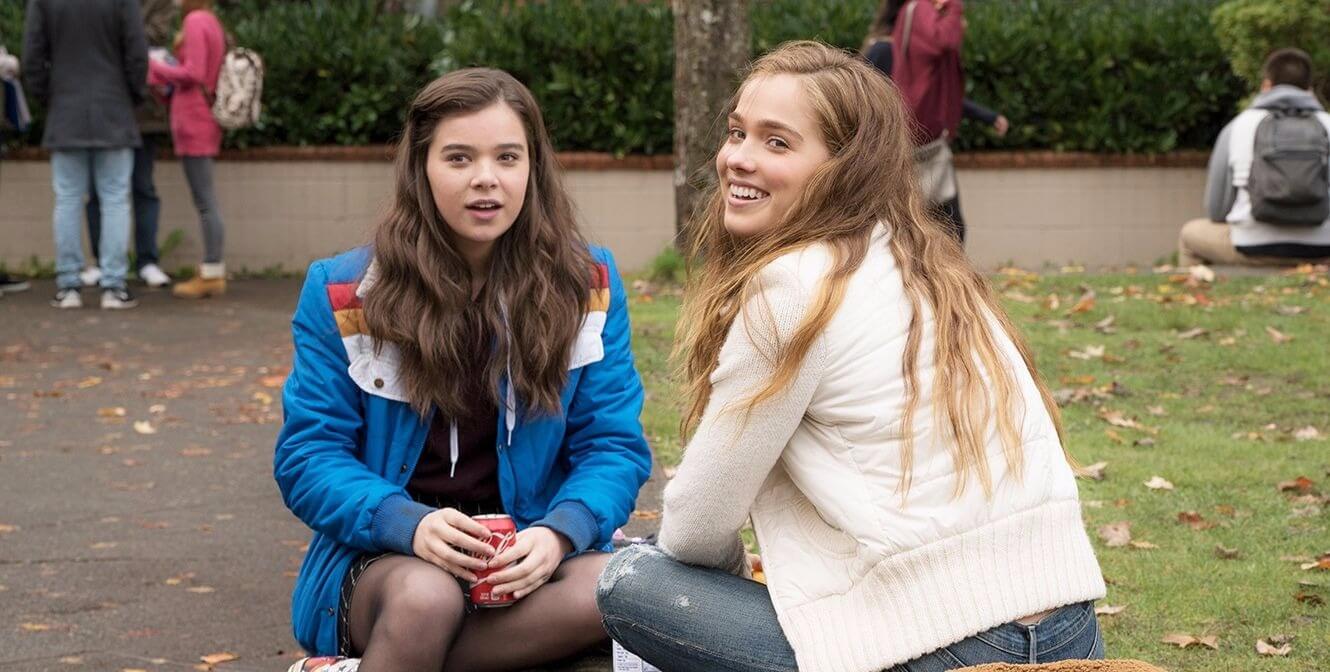The Edge of Seventeen [2016] is a coming-of-age, teen film, starring Hailee Steinfeld as the angst-ridden student, Nadine. After the awkward teen discovers her best friend, Krista (Haley Lu Richardson) is seeing her perfect brother Darian (Blake Jenner), her life begins to spiral, with both comedic and heart-wrenching results.
Unapologetically Awful: What makes this movie better than most other teen movies is the fact that it actually attempts to replicate the teenage experience. It's not always necessarily accurate, or even always very believable, what with the occasional shoe-throwing fits and unflinchingly cruel teacher sarcasm, but, overall, it does add up to an enjoyable, almost life-like experience. This is largely due to Nadine, and Hailee Steinfeld's brilliant performance of her. What I both love, and hate, about Nadine is that she is unapologetically awful. She's brash, rude, angst-ridden and sarcastic. She's awful to her brother, her mother, her best friend and the boy who has a crush on her. There are times where it is impossible not to cringe at her antics (see: shoe throwing), but the story is so focalized through her experience that it is also impossible not to connect with her, and sympathize with her. Because we spend all of our time with Nadine we understand that she's awkward, confused and insecure; we recognize where all of the awful parts of her character come from. It also gives us much more opportunity to relish the slow changes in her character. The Edge of Seventeen is a proper coming-of-age narrative that illustrates a young person struggling through something and growing from that experience...Gone is the typical 'perfect, but nerdy girl transforms into a much cooler girl and scores a date with the high school quarterback at the homecoming dance' narrative; the real coming-of-age narrative requires an imperfect protagonist, and Nadine is delightfully imperfect.
Light and shade: The film balances Nadine’s less savory character traits with revealing moments of insecurity, confusion or even, occasionally, kindness, a technique that works similarly over the broader narrative. The Edge of Seventeen balances its darker elements with comedic points that make the characters more likable and turn what might have otherwise been a dreary, boring film into something watchable. When I say balance, I don't just mean that for every dark moment there is a comedic one. I am instead referring to the presence of both light and dark in every moment of the movie. The comedy is tainted with a dark edge, with its references to depression, suicidal ideation, and dysfunctional families. You're never quite allowed to forget that you're shadowing the footsteps of a deeply dysfunctional teenage girl. This constant light and shade works to create verisimilitude in the film.
The 'meh' ending: Compared to its teen predecessors, which ended with the perfect kiss, with the perfect guy, at the perfect dance, The Edge of Seventeen doesn't seem to have the strongest dramatic finale. But, the narrative is so tightly focused on a short period of time in the life of one character that the ‘smallness’ of the ending works. The film celebrates the growth of one character in small ways, it doesn’t linger too long or dilute its meaning with shallow melodrama. The result is a satisfying and impactful ending, rather than a forgettable one.
The Edge of Seventeen is a teen flick that stands apart from other teen flicks.
Nadine may not always be likable, but her story is always interesting.

Related: The film The Edge of Seventeen features on Borrowing Tape's Best Films of 2016 list.
